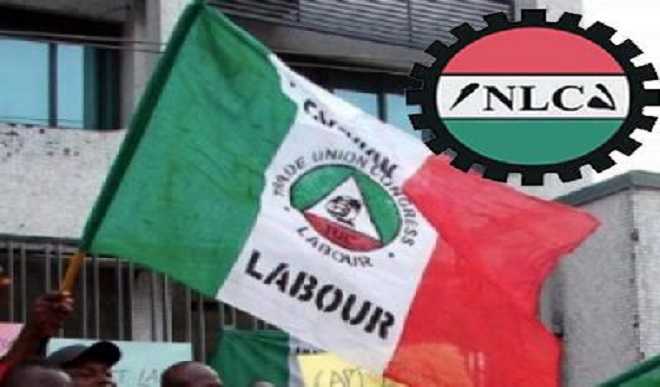
Labour will most likely have its way in the ongoing jostle for an increased minimum wage. But let me have my say. I am concerned as a private sector employer, who has managed to fulfill his obligations to his staff on a monthly basis, that the quest by the Nigeria Labour Congress and sister unions will certainly put all of us under immense pressure, and like the previous experiments, only increase prices across the board for everyone. That is called inflation. Hyperinflation.
We are almost exiting one period of galloping inflation, and are about to enter another. The National Bureau for Statistics may tell us it is 17%, but the common man knows that prices of the goods that matter have doubled (100%) in the last one year at least. Whereas this receding inflation was supply-side led (because sellers of goods had to increase their prices to stay afloat in the face of presidential nonchalance to the exchange rate, this one will be demand-led as more money will be in the hands of civil servants chasing the few imported goods.
The promise of diversification hasn’t materialized. Yes, some local producers sprang up in the last few months but they are gasping for breath. The larger part of the coming inflation will be fueled by perception; the perception that everybody now has more money to spend. Nigeria is mostly a sellers’ market. Those who manage to get into business go in with an eye to max out. They are on the lookout for getting more money from the pockets of people. The markets are more imperfect here than in most other places. That is why when there is a 50% increase in the price of petrol, transport fares simply double and remain there.
The buyers/consumers have no power to challenge or resist. Everybody just wants to get home as soon as they can. Now we are talking of an increase in minimum wage from N18,000 to N56,000. That is like 211%. Only the future knows how the markets will react. For now, more than 50million Nigerian youths are not earning even a kobo at all. It means their lives will be tougher… and they will likely react in a way that will shock all of us.
There is every likelihood that – as was the case in the past – a decision will be reached to assuage Labour, which is a conglomeration of mostly government workers. As in the past, we will have a lot of ‘grammar’ being ‘blown’ in board rooms and presentations, with billionaire ‘labour leaders’ on one hand and corrupt government officials on the other. It is usually a power game. The decision will hurt the economy and the most vulnerable among us. Nigeria will take several steps backwards, because we are not yet ready to be sincere, or to deal with our problems in sustainable fashion. As it was in the beginning…
Yes, Nigerian workers don’t need salary increases. What they need is for their salaries to be able to buy more goods and services that are relevant to their good living. We have been trying this approach of one-sided increases which have never augured well for the Nigerian economy. I wish we could think out of the box this time. For one, most Nigerian workers are spending their monies on infrastructure that the government should otherwise make available; water boreholes, electricity generating sets, security, exorbitant school fees and so on. Elsewhere, society has agreed on what is possible and what is not. Here, those we have saddled with taking care of our commonwealth to provide these amenities have decided to privatize taxpayers’ funds. To make matters worse, they would rather quarantine such monies in secret places than make them available even for the creation of businesses. On the flip side, many of the workers asking for higher wages are not ready to examine their own ways; whether in the perpetuation of corruption, frauds and sharp practices, or in mismanaging their finances with the choices they make. Some want to live like their Permanent Secretaries, they want their children to attend the same foreign universities as their Ministers’ children, and for some, you’ll be shocked to see how they spend at ‘owambes’ every weekend. Some – especially the women – always attend such occasions to show off the latest of their tons of clothes and shoes. In this game, no one is ready to come clean and change their ways.
I am hereby trying to summarise why the cons outweigh the pros in this debate, and why I wish we could tow a path less traveled (by us). These increases have never worked. I remember the increases in price level caused under the Obasanjo regime, when he increased minimum wage from N250 to N5,500 in the year 2000. All we have ever seen is a devaluation of the currency since then, either through inflation or a deliberate marking down against other major currencies. In short, increases in minimum wage have never worked and it is unlikely to, this time. One challenge peculiar to Nigeria and a few of its peers is that we don’t increase anything by 5% or 10%. We are calling for a 211%. Imagine if prices increased across the board in the same proportion or something close to that?
I am proposing a more reasonable alternative – which I’ve been calling for since the beginning of the Buhari regime. But let’s start by looking at these points:
1. Again, the private sector cannot afford the wage increase at this time. Even MTN just sacked 280 people, among other layoffs by the big companies and banks (which are currently sacking workers and closing down hundreds of branches). Meanwhile, SMEs are meant to be the bedrock of this economy. SMEs have been squeezed dry by the debilitating conditions of doing business here.
2. Wage increases will only benefit the workers for a short while. Inflation will gobble it up quickly and set us up for another round of agitation for wage increases. This one may even lead to an economic collapse because this economy has been battered by too many malignant diseases of late; notably insane corruption and massive theft of public funds.
3. People who are not really unionized – like artisans – will only suffer more as they cannot increase their rates. Also, non-unionised private sector workers will suffer greatly as they are booted out or told to make do with what companies can offer; all in the face of increasing prices.
4. We still have a huge problem with the GHOST WORKER syndrome. This increase will increase the loot that the beneficiaries of ghost worker salaries will take. The last time the Finance Minister said she caught 50,000 ghost workers. But the next thing was that presidential spokesman Garba Shehu jumped in the fray, took over the communication and the whole thing fizzled out. We learnt they arrested five workers in the cash office, but we know that five people in some cash office cannot be responsible fully for siphoning N13billion monthly, or N143billion yearly. Who are the godfathers? I also have it on authority that there are about 60,000 men in Nigerian Army but 110,000 on paper. Every state in Nigeria suffers this phenomenon. The way this problem has been handled so far, I don’t believe it will ever end.

 Join Daily Trust WhatsApp Community For Quick Access To News and Happenings Around You.
Join Daily Trust WhatsApp Community For Quick Access To News and Happenings Around You.


